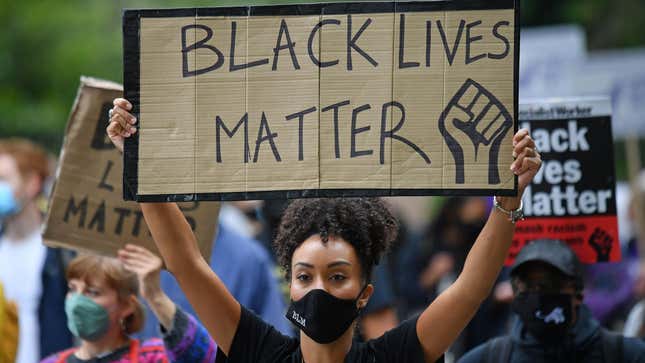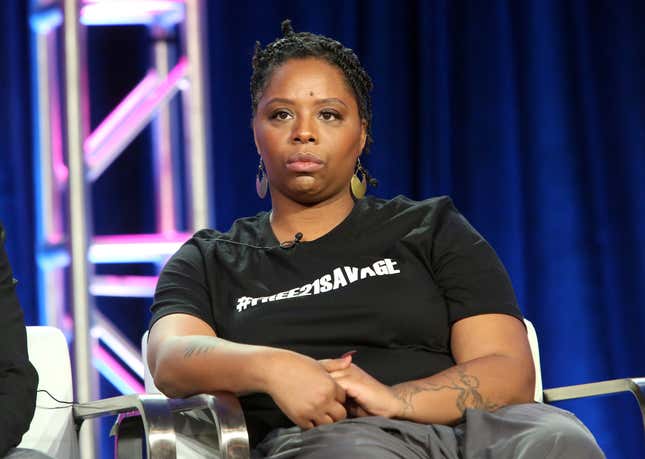Black Lives Matter Founders Allegedly Bought a $6 Million Mansion With Donation Dollars. We Want Answers.
Allies are asking for transparency as the organization is accused of misusing donation funds.
EntertainmentEntertainment

Black Lives Matter co-founder Patrisse Cullors, along with the other BLM founders, is under investigation after the organization allegedly bought a $6 million dollar mansion with donation funds, according to a report published in New York Magazine on Monday. After years of unacknowledged complaints about where donations to the organization are going, this explosive report has allies of the movement questioning how the money was used inappropriately and whether its even being used to support the Black community at all.
The first time the public was tipped off to the organization owning a lavish $6 million house in Studio City was during a YouTube special filmed to commemorate the one year anniversary of the police killing of George Floyd. In the video on the organization’s YouTube page, which has curiously been taken down, the founding members are seen toasting champagne with the backdrop being the picturesque mansion’s terrace and patio.
The mansion, for which the board said is being used for “furthering the BLM mission,” was purchased just two weeks after the organization received a payout of $66.5 million in donations from its fiscal sponsor. As a result of Floyd’s murder, BLM received an influx of $90 million of financial support from donors and corporations such a Cisco and Airbnb. Now, BLM supporters and community are outraged and riddled with questions about how the organization chose to utilize its funds and who is benefitting from the amassed wealth.
One of the biggest complaints has been about the organization buying a house when that money should have been used to help the families of those who were killed at the hands of police brutality. Notably, those funds could’ve helped someone like Tamir Rice’s mother, who had to move into a homeless shelter during the lengthy investigation into her son’s murder in 2015. Then there are the ethics and morals of using a $6 million dollar home for “housing and studio space” for the Black Joy Creators Fellowship, which are shaky at best. The NYMag report points out that the fellowship was touted as a a place of providing “recording resources and dedicated space for Black creatives to launch content online” before noting that “relatively little content has been produced there over the course of 17 months.”
-

-

-

-

-

-

-

-

-

-

-

-

-

-

-

-

-

-

-

-

-

-

-

-

-

-

-

-

-

-

-

-

-

-

-

-

-

-

-

-









































